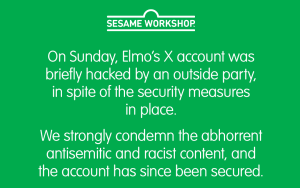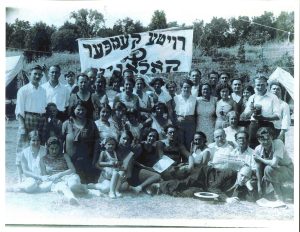When valedictorian Salahuddin Said approached the podium, the customary applause rippled warmly in the convocation hall at University of Waterloo.
Draped prominently around his neck was a keffiyeh, the checkered pattern stark and purposeful against his academic regalia.
A Bachelor of Applied Science graduate in mechanical engineering, Said delivered a speech that was mostly typical during this June ceremony. He cracked inside jokes about course material, about connections forged among students, and spoke about the ethical responsibilities of engineers. Eventually, however, he departed from his pre-approved speech.
“I must direct your attention to the ethical catastrophe in Israel’s genocide in Gaza, where technology developed by engineers has been used by Israel to target and bomb civilians, over 60,000 of which have been killed, including aid workers, journalists, and entire family trees, to decimate refugee camps, hospitals, and every university like the one we stand in today,” he said.
“As an engineer, I am obligated to join the 6,000 other students in again calling upon the University of Waterloo to sever ties with Israel’s Technion Institute for its role in developing weapons used against civilians and infrastructure in Gaza.”
Nick Manning, associate vice-president of communications at the University of Waterloo, said in an email to The CJN that Said’s delivered speech was not the draft approved by the convocation committee. “At Waterloo, freedom of expression is foundational,” Manning wrote. “We review valedictorian speeches in advance. The remarks shared were modified from what had been submitted.”
One mother of a Jewish graduating student, who did not wish to use her name, expressed disappointment. “This was not a political event, and it’s not the place for this. He’s supposed to represent all of the students. And he didn’t.”
Jay Solomon, chief advancement officer at Hillel Ontario, strongly condemned the incident. “A student used what should be a joyous moment to take a position singling out Jewish students, calling on the university to sever ties with an academic institution in the world’s only Jewish state,” he told The CJN, mentioning that similar incidents have occurred at Ontario graduation ceremonies over the last two years.
In a social media post, Hillel Ontario urged the University of Waterloo to condemn the speech and reaffirm its partnership with Technion, calling the speech “divisive and discriminatory.”
“By implying that the university, and by extension its graduates, are complicit in ‘genocide,’ he not only shamed his fellow graduates and their families but also alienated the Jewish community and all those who support Israel or who have benefited from studying at the Technion. It was a discriminatory and deeply inappropriate accusation that had no place at a graduation ceremony.”
This case, however, was not an anomaly.
Across Canadian universities, convocations—meant to celebrate academic achievement—have become fraught battlegrounds for political messaging. Many Jewish students told The CJN they would skip graduation ceremonies this year, feeling unsupported by administrations. Others chose to demonstrate solidarity with Israel openly, wearing hostage pins, symbols, and Israeli flags. At least one Jewish student at an Ontario university was physically assaulted for making such a choice, The CJN has learned.
Yet, even for those who wish to celebrate academic milestones without political controversy, neutrality is becoming increasingly elusive.
Institutional neutrality versus student expression
The University of Waterloo recently shared a statement about freedom of expression and institutional neutrality, posted on its website. The statement includes recommendations detailed from the school’s Task Force on Freedom of Expression and Inclusive Engagement.
According to that statement, members of the university community often urge institutional leaders to publicly respond to social, political or moral issues, but taking an institutional stance can stifle the diverse views essential to campus debate. Instead, the statement said, Waterloo sees its role as providing support for individual expression, recognizing these issues as central to academic discourse but not the institution’s direct responsibility to address publicly.
“Adopting a position of institutional neutrality and institutional restraint allows us to safeguard our mission and ensure that the University remains a place where individuals can engage freely and robustly with ideas from all perspectives, without the chilling effect that may result from institutional endorsement of a particular view,” the statement reads.
Manning clarified the university’s stance, given recent criticism towards the convocation committee’s inaction toward Said’s comments. “I want to be clear with you that the views expressed are those of the individual and self-evidently, given the criticism levelled at the university, are not the views of the institution,” he wrote.
He added that the comments made did not warrant any action to be taken during the speech.
Jacqueline Dressler, director of advocacy for Hillel Ontario, pointed out that Said’s speech has been posted publicly by the university without any condemnation.
“By sharing the unedited video of the ceremony on the Faculty of Engineering website, the university is demonstrating a blatant disregard for the harm caused by the speech,” Dressler said, in an email statement to The CJN.
“Not only was the speaker able to continue with the unapproved remarks, with no condemnation, but the school is continuing to promote it.”
Students skipping convocations
Other students, who chose to remain anonymous, said they have opted out of attending their convocation ceremonies this June, frustrated by administrations’ failures to address antisemitism on campus.
“I don’t trust my school’s administration to leave anti-Israel stuff out of the ceremony,” one student said, with an upcoming convocation at Toronto Metropolitan University (TMU).
Other students feel isolated from their cohort, feeling that their student colleagues have demonized their Jewish identity. “After seeing so much of their anti-Israel stuff posted on Instagram, I couldn’t just sit next to them in my gown and pretend everything is normal,” said another student, who skipped a graduation at York University in June.
High school ceremonies caught in controversy
Tensions have even reached high school graduations. A valedictorian at a west Ottawa high school made remarks about Gaza this convocation season, which prompted the school to tell her not to attend her classes on Monday.
“I must acknowledge colonial and genocidal atrocities today, including the massacre of more than 17,000 Palestinian children in Gaza,” said Elizabeth Yao, during her commencement speech for Bell High School.
As reported by CBC, an email by the school’s principal, sent to parents after the ceremony, said that Yao “intentionally took focus away from the purpose of the event, celebrating the achievement of our graduating class.”
While valedictorians declaring political messages beyond the confines of pre-approved scripts has become more normal in recent years, a much more common form of protest has been wearing symbolic garments.
A Jewish teacher from a private Toronto high school described a recent graduation that saw numerous students wearing keffiyehs.
One of these students “blatantly folded her arms and looked right at me, as if to say, ‘What are you going to do, Jew?'” the teacher recalled. Prompted by non-Jewish parents disturbed by this display, administrators confronted the students, giving them an ultimatum: remove the keffiyehs or leave.
One student set to receive an award refused to comply, prompting administrators to warn her parents that security would escort them out if necessary. The families chose to leave, sparking further controversy. “The school is now receiving backlash for appearing pro-Israel,” the teacher explained. “But they really only acted swiftly to keep the ceremony apolitical.”
A recent social media clip, posted on Students Supporting Israel (SSI) TMU’s Instagram account, showed a graduation ceremony at TMU feature multiple graduates wearing keffiyehs before a large sign that read: ‘Divest from genocide,’ above a Palestinian flag.
“The faculty at TMU has failed their Jewish students time and time again,” wrote SSI in the post’s caption. “Graduation is a moment for celebration and acknowledging the hard work each student has put into their studies, not a place for political movements or open support for terrorism. This is the reality of Jewish students at TMU and the battles they have to face daily.”
The CJN emailed TMU’s convocation committee to learn more about dress code restrictions for graduation ceremonies and actions being taken to prevent further political messaging during these ceremonies, but did not receive a reply.
‘Don’t let them take this away’
Last June, Syd Palter sat quietly in the convocation hall at the University of Toronto, her fingers tracing the small Israeli flag she’d knotted around her wrist. Around her, the auditorium buzzed gently with anticipation as hundreds of students gathered to celebrate the academic milestone.
The previous fall, in 2023, Palter had been in Israel on Oct. 7, beginning a semester abroad when conflict erupted, reshaping her life irrevocably. To graduate on time, she’d completed a rigorous 70-page essay—a capstone requirement for her joint JD/MBA program—which she chose to focus on the Israel-Palestine conflict from a legal perspective. It was personal, demanding and exhausting. Now, in June 2024, she grappled with the tension between celebrating her achievement and publicly expressing her support for Israel.
She glanced around the hall, noting 29 keffiyehs prominently draped over students’ regalia. Moments earlier, while taking a photo near an anti-Israel encampment with her Israeli flag, a stranger had spat near her feet.
But Palter was mindful of her family’s reverence for education, and uncertain about overshadowing her graduation with what she knew would be perceived as a political statement.
As Palter wrestled internally, she heard honorary speaker Harold Hongju Koh, an international law scholar and former legal adviser of the U.S. Department of State under president Barack Obama, say, “If you stand for nothing, you’ll fall for anything.”
Summoning courage, she rose when her name was called. The hall fell silent as she walked forward, the Israeli flag visible at her wrist.
“You could hear a pin drop,” she later recalled. Yet, the moment passed without hostility, only quiet acknowledgment—a firm handshake from the chancellor, approving smiles from Jewish parents. Still, she noticed applause erupting for students boldly displaying Palestinian symbols, despite rules against obscuring graduation sashes.
That day, Palter avoided campus events and demonstrations, cautious but defiant. “We can’t live in fear,” she told The Canadian Jewish News. “If someone doesn’t want to work with me or be around me because of my identity, then I don’t want to work with them either.”
Similarly, Solomon emphasized the importance of Jewish students expressing pride in their identity and supporting Israel, especially in an environment where Zionism has been increasingly demonized on campuses.
“To support Jewish students, to support Israel, and of course to support the hostages that are still being held in Gaza, we encourage them to wear yellow ribbons, and we distributed thousands of yellow ribbons across the province ahead of these graduation ceremonies,” he said.
Palter echoed this sentiment, urging fellow Jewish students to embrace their achievements openly, whether or not they choose to publicly display solidarity with Israel.
“Don’t let them take this away from you,” Palter said. “You’ve worked so hard. This is your moment, and you can’t let them win.”
Author

Mitch is The CJN's campus and education reporter based in Toronto, Ont. He has a passion for investigative research, long-form feature writing and digital journalism. His book, Home Safe, was published by Dundurn Press in November 2022.
View all posts








